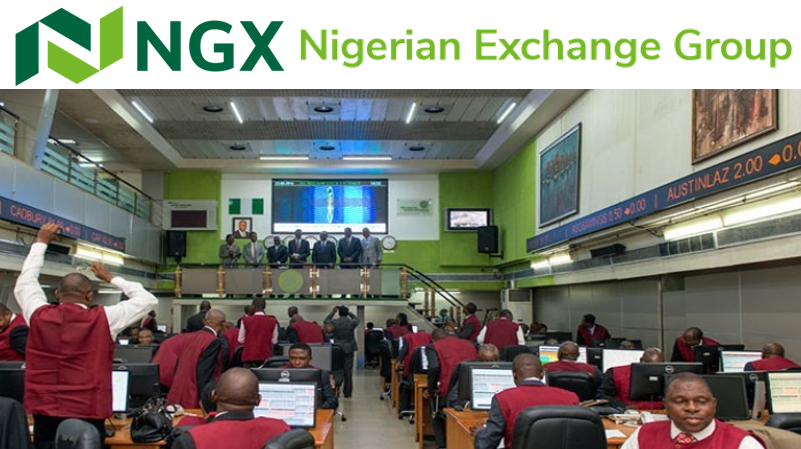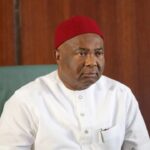Stock Market Sees Record Gains Despite Economic Pressure
Amid Nigeria’s turbulent economic conditions, the stock market recorded a significant N15.66 trillion gain in the first nine months of 2024.
Investors have shown increasing confidence, investing in blue-chip companies despite ongoing inflation, a volatile foreign exchange market, and rising interest rates.
Join our WhatsApp ChannelResilience Amid Economic Challenges
Despite Nigeria facing an inflation rate of 32.15% by August 2024, up from 28.92% in December 2023, the stock market demonstrated notable resilience.
The naira’s exchange rate against the dollar reached N1,637.69/$ by the end of September, while the Central Bank of Nigeria (CBN) raised the Monetary Policy Rate (MPR) to 27.25% in a bid to combat inflation.
READ ALSO: Nigerian Stock Market Rises By 0.42% Despite Interest Rate Hike
Yet, investors remained undeterred. “The gains we’ve seen in the stock market this year prove that investors are focusing on long-term opportunities,” said David Adnori, Vice President at Highcap Securities Limited. He noted that several reforms by the federal government and the CBN have helped to support the market’s performance.
Stock Market Capitalisation and Growth
The total market capitalisation of the Nigerian Exchange Limited (NGX) increased from N40.918 trillion at the end of 2023 to N56.578 trillion as of September 27, 2024, a rise of N15.66 trillion or 38.27%.
Similarly, the NGX All-Share Index (NGX ASI), which tracks the performance of all listed equities, rose by 31.7%, reaching 98,458.68 points from 74,773.77 points at the end of last year.
These figures place the Nigerian stock market as one of Africa’s top-performing exchanges, surpassing both the Johannesburg Stock Exchange and Egypt’s stock market in 2024.
Impact of Foreign Investors on the Stock Market
Foreign investors have played a pivotal role in the stock market’s impressive performance, with their participation rising to 18.86% by August 2024, compared to just 9.22% a year prior. This uptick has reduced the dominance of domestic investors, whose share of market participation dropped from 90.78% in August 2023 to 81.14% in 2024.
Analyst Wale Tajudeen, an investment banker and stockbroker, explained, “The N15.66 trillion gain in the stock market reflects substantial liquidity among institutional investors. It shows their confidence in the future of the listed companies, even amid high interest rates.”
Blue-Chip Companies Drive Market Gains
Some of Nigeria’s most capitalised stocks, such as Dangote Cement Plc and Airtel Africa Plc, significantly contributed to the overall market growth.
As of September 27, 2024, Dangote Cement’s stock price rose by 66.3%, closing at N532 per share, compared to N319.9 in 2023. Airtel Africa saw a 17% increase, with its share price closing at N2,200, up from N1,887 in 2023.
This growth in blue-chip stocks also fueled the rise of the NGX Industry Index, which reached 3,847.83 points by the end of September 2024, a 42% increase from the start of the year.
Banking Sector and Oil & Gas Contribute to Gains
The banking sector has also played a significant role in driving the market forward. The NGX Banking Index grew by 4.1% year-to-date (YtD), closing at 933.79 points by September 27, 2024.
Notably, Guaranty Trust Holding Company Plc completed a N400.5 billion public offer, raising its stock price by 17%, from N40.50 to N47.4 per share.
Similarly, the NGX Oil & Gas Index saw substantial growth, closing September 2024 at 1,990.84 points, a 91% rise compared to the beginning of the year.
Seplat Energy Plc led the charge in the oil and gas sector, with its share price climbing from N2,310 to N4,103.10 per share during the same period.
Investor Sentiment and Market Outlook
Market analysts attribute the stock market’s success to positive sentiment, bolstered by hopes for economic reforms under President Bola Tinubu. “The optimism surrounding the president’s policies has energised market participants,” Adnori said. “Investors believe the government’s actions will strengthen the economy, driving further growth in the stock market.”
Looking ahead, Olayinka predicted a balanced market as investors adjust their portfolios for the rest of 2024. “We expect the market to remain stable, with institutional investors continuing to dominate activity,” he said. “It will be a matter of maintaining a balance between new investments and existing shares.”
Despite the ongoing macroeconomic challenges, the Nigerian stock market has proven its resilience, positioning itself as one of Africa’s leading exchanges. Investors continue to see the growth potential, and the market remains poised for further gains in the coming months.
Emmanuel Ochayi is a journalist. He is a graduate of the University of Lagos, School of first choice and the nations pride. Emmanuel is keen on exploring writing angles in different areas, including Business, climate change, politics, Education, and others.
- Emmanuel Ochayihttps://www.primebusiness.africa/author/ochayi/
- Emmanuel Ochayihttps://www.primebusiness.africa/author/ochayi/
- Emmanuel Ochayihttps://www.primebusiness.africa/author/ochayi/
- Emmanuel Ochayihttps://www.primebusiness.africa/author/ochayi/


















Follow Us